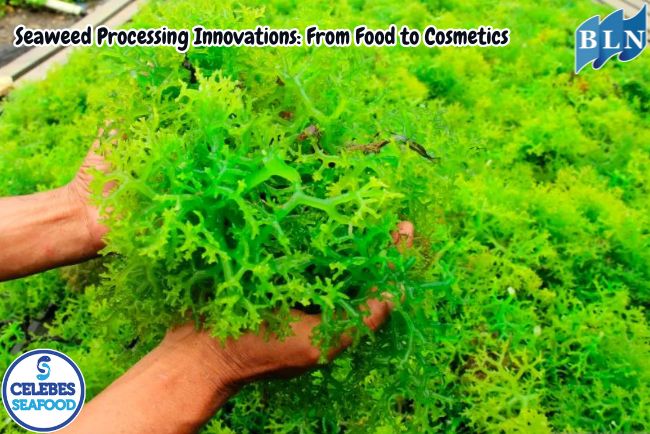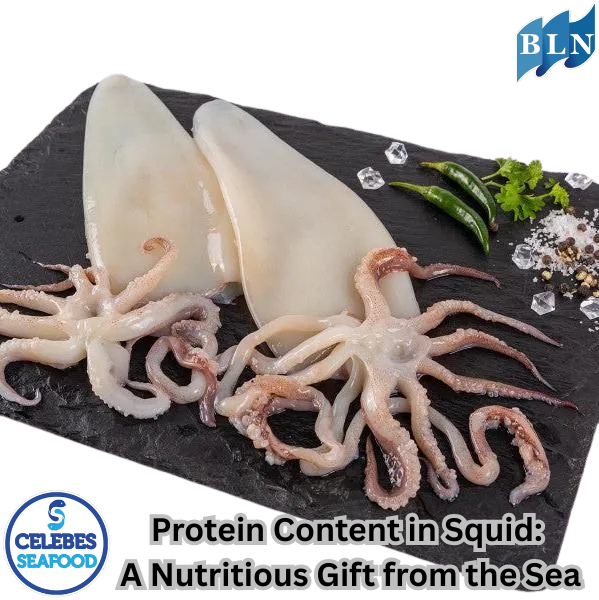Seaweed Processing Innovations: From Food to Cosmetics
By. Edi - 20 Aug 2025
lautnusantara.com Seaweed, an abundant maritime resource in Indonesian waters, is now known not only as a base ingredient for jelly or soup mixes. With the advancement of technology and research, seaweed has transformed into a versatile commodity with various processing innovations. From the culinary industry to the beauty industry, seaweed has proven its limitless potential.
Benefits and Uses of Seaweed
Seaweed plays a crucial role, both ecologically and economically.
1. Ecology:
- Oxygen Producer: Seaweed, like plants on land, performs photosynthesis and produces oxygen, which is essential for marine ecosystems.
- Marine Wildlife Habitat: Seaweed forests provide shelter and breeding grounds for many species of fish and other marine animals.
- Carbon Absorber: They help absorb carbon dioxide from the atmosphere, playing a role in mitigating climate change.
2. Economy and Culinary:
- Food Ingredients: Seaweed is used as a base for various dishes. In Japan, nori is a key ingredient in sushi. In Indonesia, seaweed is processed into sweets, crackers, or the raw material for agar-agar.
- High in Nutrition: Seaweed is rich in essential nutrients such as iodine (essential for thyroid function), iron, calcium, fiber, and various vitamins.
- Industry: Seaweed extracts, such as alginate, agar, and carrageenan, are widely used in the food industry (as thickeners and stabilizers), cosmetics, and pharmaceuticals.
Innovation in the Culinary Industry
Previously, seaweed processing was limited to sweets or crackers. However, seaweed has now become a key ingredient in various functional food products.
- Healthy Snacks: Seaweed chips are no longer just snacks. With a variety of flavors and a drying process that preserves nutrients, these chips have become a low-calorie snack alternative that is rich in fiber and minerals. There are also innovations in nori with various flavors that are popular with young people.
- Food Additives: Seaweed extracts, such as carrageenan and alginate, are used as natural thickeners, stabilizers, and emulsifiers in food and beverage products. For example, carrageenan is used in yogurt, ice cream, and pudding, while alginate is used in jelly or sausages.
- Vegan Meat Substitutes: Some types of seaweed have a texture similar to meat, making them ideal ingredients for vegan products. For example, processed seaweed that mimics chicken or fish provides a sustainable plant-based protein solution.
Innovation in the Cosmetics and Health Industry
Besides its use in food, the bioactive compounds in seaweed are highly beneficial for the beauty and health industries.
- Skin Care Products: Seaweed is rich in antioxidants, minerals, and vitamins that are beneficial for the skin. Seaweed extract is used in serums, face masks, and anti-aging creams due to its ability to moisturize, protect the skin from free radicals, and stimulate collagen production.
- Decorative Cosmetics: Seaweed is also used in decorative cosmetics. Some natural pigments from seaweed are used as colorants in lipsticks and eyeshadows. Additionally, alginate functions as a binding and stabilizing agent in cosmetic formulas.
- Health Supplements: The high nutritional benefits of seaweed have encouraged manufacturers to process it into supplements. Seaweed extract capsules rich in iodine, vitamins, and minerals are now widely available on the market, helping to maintain thyroid health and overall metabolic function.
These innovations demonstrate that seaweed is not merely a marine biota, but a resource with high economic value and the potential to be processed into various value-added products. This potential remains enormous for further development.
If you are interested in our Coral Trout Fillet Skin On, CORAL TROUT WGG WHOLE GILLED GUTTED, TOMATO COD WHOLE GILLED GUTTED please do not hesitate to contact us through email and/or whatsapp.




.jpg)


